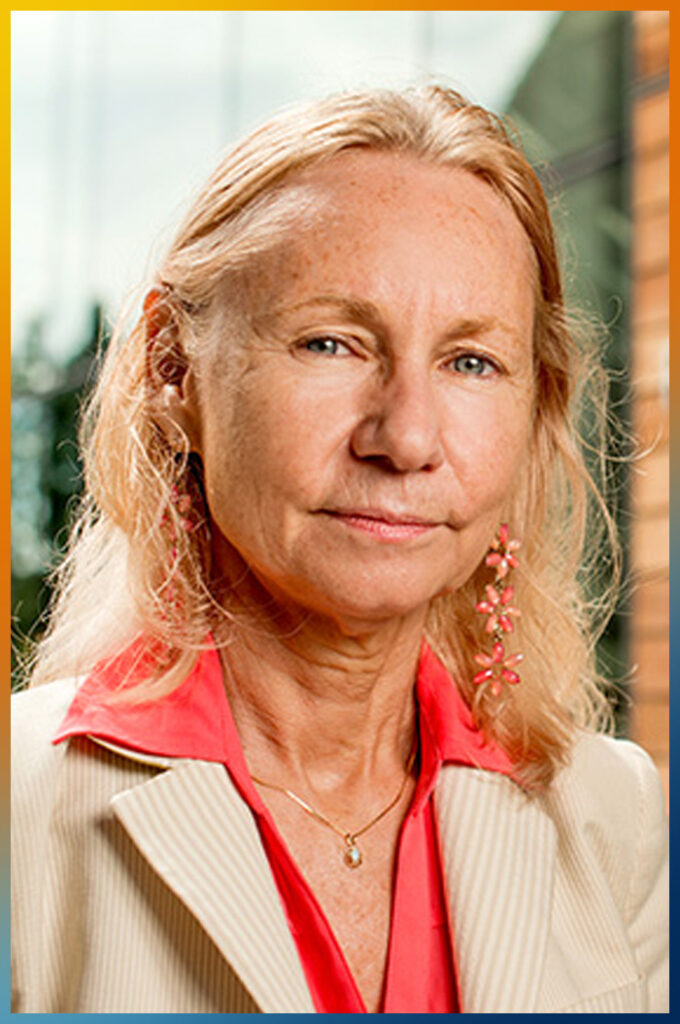Alice Agogino
PI of NRT-INFEWS (Innovations in Food, Energy Water Systems)
UC Berkeley
Alice M. Agogino is the Roscoe and Elizabeth Hughes Professor of Mechanical Engineering. She directs the BEST Lab: Berkeley Energy and Sustainable Technologies | Berkeley Expert Systems Technology | Berkeley Emergent Space Tensegrities. She currently serves as Chair of the Development Engineering Graduate Group and Education Director of the Blum Center for Emerging Economies.
Alice Agogino served as Chair of the Berkeley Division of the Academic Senate in 2005-06, having served as Vice Chair during the 2004-05 academic year. She has served in a number of other administrative positions at UC Berkeley including Associate Dean of Engineering and Faculty Assistant to the Executive Vice Chancellor and Provost in Educational Development and Technology. She also served as Director for Synthesis, an NSF-sponsored coalition of eight universities with the goal of reforming undergraduate engineering education, and continues as Founding Director for the Engineering Pathway digital library of engineering courseware. She is currently serving as Chair of the Development Engineering Graduate Group and Education Director of the Blum Center for Developing Economies. She has supervised 196 MS projects/theses, 60 doctoral dissertations and numerous undergraduate researchers.
UC Berkeley has been leading the the Indigi-Grad Workshop, a collaboration of people at UC Berkeley building community and support for students and faculty engaged in Indigenous FEWS research on campus and across the Native FEWS Alliance.



Dr. Karletta Chief
Associate Professor and Extension Specialist in the Department of Environmental Science at the University of Arizona
Primary Investigator of the five-year, $3-million NSF-funded program called Indigenous Food, Energy and Water Security and Sovereignty or Indige-FEWSS
Dr. Karletta Chief is the Primary Investigator of the five-year, $3-million NSF-funded program called Indigenous Food, Energy and Water Security and Sovereignty or Indige-FEWSS (https://environment.arizona.edu/indigefewss). This NSF NRT aims to develop a diverse STEM workforce with the intercultural awareness and multidisciplinary knowledge necessary to address food, energy, and water insecurities in Indigenous communities. Through the program, at least 38 University of Arizona graduate students are being trained on Indigenous research ethics, decolonizing research methodologies, community based participatory research, Indigenous data sovereignty, traditional knowledge, and FEWS skills. Indige-FEWSS along with its primary partner, Diné College (DC), have designed off grid solar powered mobile water treatment systems and greenhouses. Indige-FEWSS Trainees mentor Tribal College students in their labs and Trainees conduct a one-week training on Food-Energy-Water modules that they have developed. Trainees also are required to complete a PhD Minor in Indigenous Food Energy and Water Systems that includes courses across the FEWS nexus, American Indian Studies, and a capstone course on water in developing communities. Indige-FEWSS has expanded to work with the University of New Mexico in the Transformation Network (https://resilience.unm.edu) to collaborate on FEWS in NM Diné communities and with Native FEWS Alliance (http://www.nativefewsalliance.org) to support the educational pathways of Native American students in FEWS. The work of Indige-FEWSS is being institutionalized at UArizona through Native Voices in STEM and the with the Indigenous Resilience Center. The Native Voices in STEM seminar series is now hosted by departments across campus and highlights Indigenous research, leadership, and community work. The Indigenous Resilience Center (IRC) was launched at UArizona in September 2021. The IRC will support the resilience of Indigenous communities to recover from perturbations such as climate change and other environmental challenges. The IRC is recruiting faculty who have extensive expertise in Indigenous resilience to join the center in fall of 2022. The multidisciplinary work started with Indige-FEWSS will continue to expand through Native Voices in STEM and the Indigenous Resilience Center.


